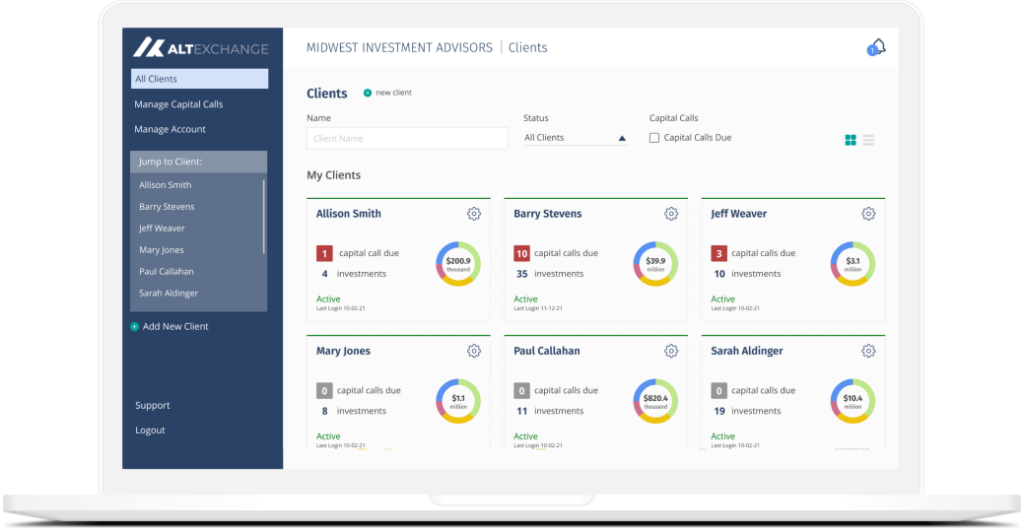When it comes to private equity vs. private credit, there are a few key differences that investors and advisors need to be aware of. Private equity is all about investing in businesses and taking an ownership stake in them. Private credit, on the other hand, is all about lending money to businesses.
Let’s take a closer look at both of these investment options to help decide which one is right for your or your clients.
Private Equity
Private equity investments can be a great way to grow your portfolio and achieve long-term returns. However, it’s important to understand the basics of private equity before investing.

Private equity is an investment in a company that is not publicly traded. The goal of private equity investors is to buy a company, fix it up, and then sell it for a profit. This can be a risky investment, but if done correctly can provide great returns.
Private Credit
Private credit is a loan to a company that is not publicly traded. The goal of private credit investors is to lend money to businesses that are likely to pay it back with interest. This can be a less risky investment than private equity, but it does come with the possibility of losing your money if the company goes bankrupt.
There are two main types of private credit investments: term loans and revolvers. Term loans are fixed-amount loans that must be repaid over a set period of time. Revolvers are loans that can be drawn down and repaid as needed, which makes them more flexible but also riskier.

Private Equity vs. Private Credit Returns
Private equity investments can provide higher returns than private credit investments, but they are also more risky. Private equity investors typically expect to earn annual returns of 20% or more, while private credit investors typically expect to earn annual returns of 10% or more.
However, private credit investments are less risky and may be a better choice for investors who are not comfortable with taking on a lot of risk.
How to Invest in Private Equity and Private Credit
Private equity investments are typically only available to accredited investors . This means that you must have a net worth of at least $1 million or an annual income of at least $200,000 to invest.
Private credit investments are available to both accredited and non-accredited investors. If you’re interested in either of these asset classes, here’s how to get started investing.

Where to invest in private equity:
- Venture capital firms: These firms invest in young companies that have high growth potential.
- Private equity firms: These firms buy companies using borrowed money.
- Angel investors: Angel investors are individuals who invest their own money in young companies.
Where to invest in private credit:
- Term loan providers: These providers offer fixed-amount loans that must be repaid over a set period of time.
- Revolver providers: These providers offer loans that can be drawn down and repaid as needed, which makes them more flexible but also riskier.
Managing Private Equity and Private Credit Investments
Both asset classes are more complex to manage than traditional alternative investments. Not to mention, most investors and advisors are still tracking via manual, messy spreadsheets.

AltExchange eliminates common pain points of managing complex alternative investments including fragmentation, unstructured data, scattered documents, limited performance visibility, and more. If you’re an advisor or investor looking for a full-solution management and reporting solution, please get in touch.